#General Jean Joseph Humbert
Text
#OTD in 1798 – Irish Rebellion of 1798 | Irish rebels, with French assistance, establish the short-lived Republic of Connacht.
The Irish Republic more commonly referred to as the Republic of Connacht was a short-lived Irish breakaway puppet state established with French Directory military support for 13 days during the Irish Rebellion of 1798.
Below is an excerpt from the proclamation of General Humbert, the French General who led the French and Irish armed forces in the short-lived Republic. The proclamation was made on…
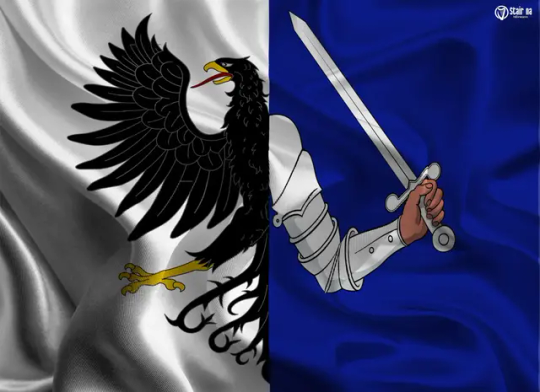
View On WordPress
#1798 United Irishmen Rebellion#Ballinamuck#British Army#Castlebar#England#France#French Revolutionary Army#General Jean Joseph Humbert#Irish Rebels#John Moore#Killala#Republic of Connacht#Republic of Ireland#The Year of the French
12 notes
·
View notes
Text
"This unhappy country"...
In late 1796 the French Directory organized the Expédition d'Irlande, which involved more than forty ships and some 15,000 soldiers, all under the command of General Lazare Hoche, to support the United Irishmen and drive the British out of Ireland. This "unhappy country", as the French official newspaper described Ireland, had long served as "the experimental laboratory of British colonization" and suffered greatly from the Anglo-Protestant hegemony that had been firmly established in the wake of the Cromwellian conquest of Ireland in the mid-seventeenth century. Despite representing the vast majority of the population and outnumbering Anglo-Protestants by about five to one, the Catholic Irish were dispossessed of their land, denied entry into certain professions, and disallowed from political participation. The French Revolution had a major impact on Ireland. In 1791 Presbyterian and Catholic Irish came together to form the Society of United Irishmen, led by the Dublin Protestant lawyer Wolfe Tone. Influenced by French revolutionary ideals, the United Irishmen called for Catholic emancipation and major political and economic reforms, though some radical members also envisioned an independent Irish Republic free from English control.
During the first three years of the French Revolution, the United Irishmen published newspapers and hundreds of pamphlets expressing clear sympathy for the French revolutionaries. The British government was naturally perturbed by the organization, especially after the outbreak of the war between Britain and France in February 1793, when it came to see the United Irishmen as potentially treasonous. In 1793 the British authorities adopted several laws targeting the society before outlawing it entirely in 1794. The United Irishmen, forced underground, continued their struggle. The crackdown only radicalized its members, and over the next three years they reorganized the society, turning it into a militarized organization that made preparations for rebellion, which France was eager to exploit.
After mobilizing at Brest on the Brittany coast, the French launched the operation in December 1796, amid what proved to be one of the roughtest winters of the eighteenth century. Sailing toward Bantry Bay, the French fleet suffered greatly and was unable to make amphibious landings in Ireland. Within a week the entire expedition was recalled, with a dozen French ships captured or wrecked and more than 2,000 men lost. The invasion was defeated not by the Royal Navy but rather by a combination of bad weather, poor seamanship and poor French decision-making. It did, however, reveal weaknesses in the British defenses, especially in light of continued mutinies over pay and conditions in the Royal Navy.
A year and a half later France organized an expedition in support of a local rebellion in Ireland. The uprising first began around Dublin but quickly spread to County Wexford, in southeast Ireland. On May 29 the United Irishmen stormed the town of Enniscothy and then succeeded in taking the town of Wexford. The rebellion soon spread to other areas as well, including Antrim and County Down, where rebel forces assembled under the leadership of Henry McCracken and Henry Monro. The Irish hoped for French military support, but it failed to materialize. British victories at Ballynahinch (near Belfast), New Ross and Bunclody (in County Wexford), and Arklow (in County Wicklow) effectively neutralized the rebellion. Both McCracken and Monro were captured and executed without proper trial. Tone, also captured, committed suicide in jail.
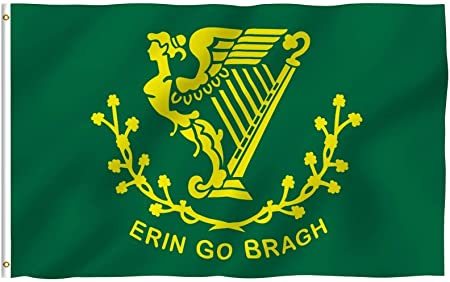
The Irish rebellion seemed over when on August 22, 1798, a French expeditionary force, led by General Jean Joseph Humbert, landed at Kilcummin. The French continued to see Ireland as Britain's weak point, while the Irishmen still hoped for French support in their struggle against British rule. Upon their arrival the French forces occupied the town of Killala, where they hoisted a green flag with the slogan "Erin go Bragh" (Ireland forever) and a harp without a crown, inviting the Irish rebels to "assert their freedom" from the British monarchy and join the free Frenchmen, who had "come for no other purpose but to make them independent and happy." The French scored a minor victory over the British at Castlebar, which encouraged many Irishmen to renew their resistance. Humbert called for further French reinforcements, but these did not arrive, owing yet again to poor weather in the Atlantic. Meanwhile, British troops led by lord Charles Cornwallis, the lord lieutenant of Ireland, converged on Humbert, who suffered defeat at Ballinamuck (September 8) and Killala (September 23) and was forced to surrender. Humbert's defeat marked the end of the rebellion, which had led to the death of some 20,000 Irishmen, and dashed Irish hopes for independence from British rule.
Alexander Mikaberidze- The Napoleonic Wars, A Global History
#xviii#alexander mikaberidze#the napoleonic wars: a global history#the united irishmen#l'expédition d'irlande#france & ireland
9 notes
·
View notes
Text
1798 - General Humbert's French Troops Fight For Ireland
1798 – General Humbert’s French Troops Fight For Ireland
In 1798, as Irish patriots fought the colonial forces of Britain, General Jean Joseph Amable Humbert, sailed to the west coast of Ireland to assist the Irish in their bid for national freedom.
Sadly, the Napoleonic troops arrived too late, as the United Irishmen’s rebellion had already been effectively subdued by this stage. The Republican forces were defeated and the French soldiers captured as…
View On WordPress
0 notes
Text
#OTD in 1798 – Irish Rebellion of 1798 | Irish rebels, with French assistance, establish the short-lived Republic of Connacht.
#OTD in 1798 – Irish Rebellion of 1798 | Irish rebels, with French assistance, establish the short-lived Republic of Connacht.
The Irish Republic more commonly referred to as the Republic of Connacht was a short-lived Irish breakaway puppet state established with French Directory military support for 13 days during the Irish Rebellion of 1798.
Below is an excerpt from the proclamation of General Humbert, the French General who led the French and Irish armed forces in the short-lived Republic. The proclamation was made on…

View On WordPress
#1798 United Irishmen Rebellion#Ballinamuck#British Army#Castlebar#England#France#French Revolutionary Army#General Jean Joseph Humbert#Irish Rebels#John Moore#Killala#Republic of Connacht#Republic of Ireland#The Year of the French
8 notes
·
View notes
Text
#OTD in Irish History | 22 August:
565 – St Columba reports seeing a monster in Loch Ness, Scotland.
1755 – Birth of General Jean Joseph Amable Humbert. He was a French soldier, a participant in the French Revolution, who led a failed invasion of Ireland to assist Irish rebels in 1798.
1791 – Theobald Wolfe Tone publishes “An argument on behalf of the Catholics of Ireland”.
1798 – Birth of doctor, writer, abolitionist and…
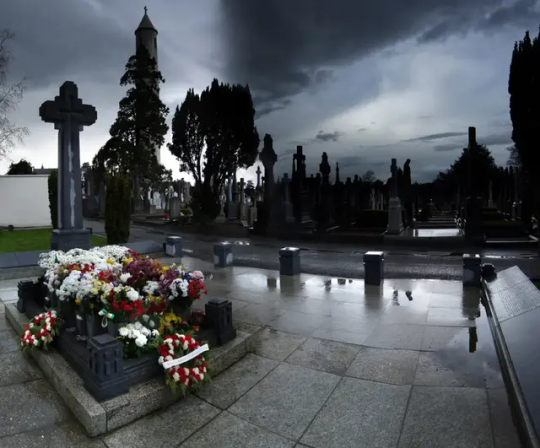
View On WordPress
#irelandinspires#irishhistory#OTD#22 August#Bandon#Beal na mBláth#Catholic Synod#Clonakilty#Co. Cork#General Jean Joseph Amable Humbert#History#History of Ireland#Ireland#Irish Civil War#Irish History#Irish War of Independence#Jimmy Barry Murphy#John Keegan Casey#Loch Ness#St. Columba#Theobold Wolfetone#Today in Irish History
10 notes
·
View notes
Text
#OTD in 1798 – Wolfe Tone’s United Irish and French forces clash with the British Army in the Battle of Castlebar.
The Battle of Castlebar near the town of Castlebar, Co Mayo. A combined force of 2,000 French troops and Irish patriots routed a force of 6,000 British militia in what would later become known as the “Castlebar Races” or “Races of Castlebar”.
The long-awaited French landing to assist the Irish revolution begun by Theobald Wolfe Tone’s Society of United Irishmen had taken place five days…
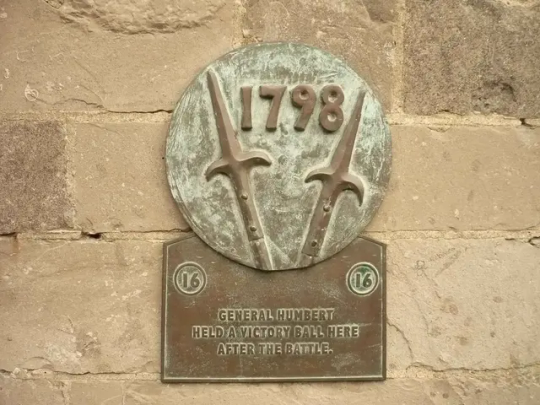
View On WordPress
#1798 United Irishmen Rebellion#Castlebar#Co. Mayo#General Jean Joseph Amable Humbert#History of Ireland#Ireland#Irish History#Lord Cornwallis#Lord Lieutenant of Ireland#Republic of Connacht#Theobald Wolf Tone
8 notes
·
View notes
Text
#OTD in 1798 – Wolfe Tone’s United Irish and French forces clash with the British Army in the Battle of Castlebar.
#OTD in 1798 – Wolfe Tone’s United Irish and French forces clash with the British Army in the Battle of Castlebar.
The Battle of Castlebar near the town of Castlebar, Co Mayo. A combined force of 2,000 French troops and Irish patriots routed a force of 6,000 British militia in what would later become known as the “Castlebar Races” or “Races of Castlebar”.
The long-awaited French landing to assist the Irish revolution begun by Theobald Wolfe Tone’s Society of United Irishmen had taken place five days…
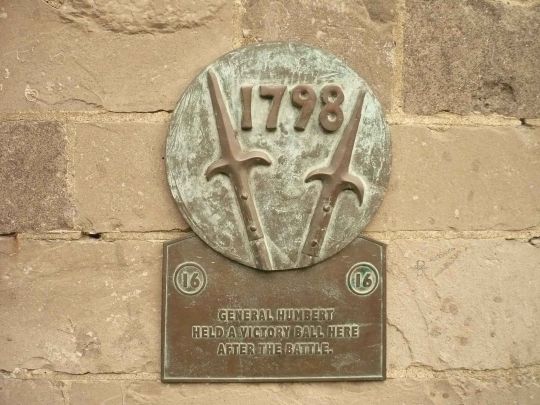
View On WordPress
#1798 United Irishmen Rebellion#Castlebar#Co. Mayo#General Jean Joseph Amable Humbert#History of Ireland#Ireland#Irish History#Lord Cornwallis#Lord Lieutenant of Ireland#Republic of Connacht#Theobald Wolf Tone
5 notes
·
View notes
Text
#OTD in Irish History | 22 August:
#OTD in Irish History | 22 August:
565 – St Columba reports seeing a monster in Loch Ness, Scotland.
1755 – Birth of General Jean Joseph Amable Humbert. He was a French soldier, a participant in the French Revolution, who led a failed invasion of Ireland to assist Irish rebels in 1798.
1791 – Theobald Wolfe Tone publishes “An argument on behalf of the Catholics of Ireland”.
1798 – Birth of doctor, writer, abolitionist and…

View On WordPress
#irelandinspires#irishhistory#OTD#22 August#Bandon#Beal na mBláth#Catholic Synod#Clonakilty#Co. Cork#General Jean Joseph Amable Humbert#History#History of Ireland#Ireland#Irish Civil War#Irish History#Irish War of Independence#Jimmy Barry Murphy#John Keegan Casey#Loch Ness#St. Columba#Theobold Wolfetone#Today in Irish History
4 notes
·
View notes
Text
#OTD in Irish History | 3 January:
1663 – Thomas Crompton of Arklow, a clergyman, petitions the House of Lords that ‘Constantine Neal of Wexford, merchant, refuseth to restore the bell belonging to the steepl (sic) of Arklow, which he saw in his possession’. An order is made for its restoration.
1823 – Death of General Jean Joseph Amable Humbert. He was a French soldier, a participant in the French Revolution, who led a failed…
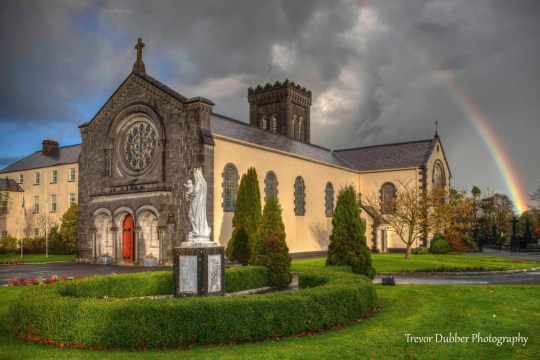
View On WordPress
#irelandinspires#irishhistory#OTD#Co. Kerry#History#History of Ireland#Ireland#Irish Civil War#Irish History#Killarney#Lough Leane#Today in Irish History
10 notes
·
View notes
Text
#OTD in Irish History | 3 January:
#OTD in Irish History | 3 January:
1663 – Thomas Crompton of Arklow, a clergyman, petitions the House of Lords that ‘Constantine Neal of Wexford, merchant, refuseth to restore the bell belonging to the steepl (sic) of Arklow, which he saw in his possession’. An order is made for its restoration.
1823 – Death of General Jean Joseph Amable Humbert. He was a French soldier, a participant in the French Revolution, who led a failed…

View On WordPress
#irelandinspires#irishhistory#OTD#Co. Kerry#History#History of Ireland#Ireland#Irish Civil War#Irish History#Killarney#Lough Leane#Today in Irish History
8 notes
·
View notes
Text
#OTD in 1798 – Irish Rebellion of 1798 | Irish rebels, with French assistance, establish the short-lived Republic of Connacht.
#OTD in 1798 – Irish Rebellion of 1798 | Irish rebels, with French assistance, establish the short-lived Republic of Connacht.
The Irish Republic more commonly referred to as the Republic of Connacht was a short-lived Irish breakaway puppet state established with French Directory military support for 13 days during the Irish Rebellion of 1798.
Below is an excerpt from the proclamation of General Humbert, the French General who led the French and Irish armed forces in the short-lived Republic. The proclamation was made on…
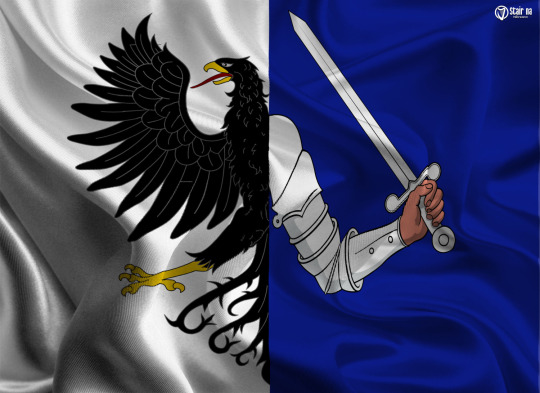
View On WordPress
#1798 United Irishmen Rebellion#Ballinamuck#British Army#Castlebar#England#France#French Revolutionary Army#General Jean Joseph Humbert#Irish Rebels#John Moore#Killala#Republic of Connacht#Republic of Ireland#The Year of the French
8 notes
·
View notes
Text
#OTD in 1798 – Irish Rebellion of 1798 | Irish rebels, with French assistance, establish the short-lived Republic of Connacht.
#OTD in 1798 – Irish Rebellion of 1798 | Irish rebels, with French assistance, establish the short-lived Republic of Connacht.
The Irish Republic more commonly referred to as the Republic of Connacht was a short-lived Irish breakaway puppet state established with French Directory military support for 13 days during the Irish Rebellion of 1798.
Below is an excerpt from the proclamation of General Humbert, the French General who led the French and Irish armed forces in the short-lived Republic. The proclamation was made on…
View On WordPress
#1798 United Irishmen Rebellion#Ballinamuck#British Army#Castlebar#England#France#French Revolutionary Army#General Jean Joseph Humbert#Irish Rebels#John Moore#Killala#Republic of Connacht#Republic of Ireland#The Year of the French
3 notes
·
View notes
Text
#OTD in 1798 – Irish Rebellion of 1798: Irish rebels, with French assistance, establish the short-lived Republic of Connacht.
#OTD in 1798 – Irish Rebellion of 1798: Irish rebels, with French assistance, establish the short-lived Republic of Connacht.

The Irish Republic more commonly referred to as the Republic of Connacht was a short-lived Irish breakaway puppet state established with French Directory military support for 13 days during the Irish Rebellion of 1798.
Below is an excerpt from the proclamation of General Humbert, the French General who led the French and Irish armed forces in the short-lived Republic. The proclamation was made on…
View On WordPress
#1798 United Irishmen Rebellion#Ballinamuck#British Army#Castlebar#England#France#French Revolutionary Army#General Jean Joseph Humbert#Irish Rebels#John Moore#Killala#Republic of Connacht#Republic of Ireland#The Year of the French
5 notes
·
View notes
Text
#OTD in 1798 – Irish Rebellion of 1798: Irish rebels, with French assistance, establish the short-lived Republic of Connacht.
#OTD in 1798 – Irish Rebellion of 1798: Irish rebels, with French assistance, establish the short-lived Republic of Connacht.
The Irish Republic more commonly referred to as the Republic of Connacht was a short-lived Irish breakaway puppet state established with French Directory military support for 13 days during the Irish Rebellion of 1798.
Below is an excerpt from the proclamation of General Humbert, the French General who led the French and Irish armed forces in the short-lived Republic. The proclamation was made on…
View On WordPress
#1798 United Irishmen Rebellion#Ballinamuck#British Army#Castlebar#England#France#French Revolutionary Army#General Jean Joseph Humbert#Irish Rebels#John Moore#Killala#Republic of Connacht#Republic of Ireland#The Year of the French
7 notes
·
View notes
Text
#OTD in Irish History | 22 August:
#OTD in Irish History | 22 August:
565 – St Columba reports seeing a monster in Loch Ness, Scotland.
1755 – Birth of General Jean Joseph Amable Humbert. He was a French soldier, a participant in the French Revolution, who led a failed invasion of Ireland to assist Irish rebels in 1798.
1791 – Theobald Wolfe Tone publishes “An argument on behalf of the Catholics of Ireland”.
1798 – Birth of doctor, writer, abolitionist and…

View On WordPress
#irelandinspires#irishhistory#OTD#22 August#Bandon#Beal na mBláth#Catholic Synod#Clonakilty#Co. Cork#General Jean Joseph Amable Humbert#History#History of Ireland#Ireland#Irish Civil War#Irish History#Irish War of Independence#Jimmy Barry Murphy#John Keegan Casey#Loch Ness#St. Columba#Theobold Wolfetone#Today in Irish History
10 notes
·
View notes
Text
#OTD in 1798 – Irish Rebellion of 1798: Irish rebels, with French assistance, establish the short-lived Republic of Connacht.
#OTD in 1798 – Irish Rebellion of 1798: Irish rebels, with French assistance, establish the short-lived Republic of Connacht.
The Irish Republic more commonly referred to as the Republic of Connacht was a short-lived Irish breakaway puppet state established with French Directory military support for 13 days during the Irish Rebellion of 1798. Below is an excerpt from the proclamation of General Humbert, the French General who led the French and Irish armed forces in the short-lived Republic. The proclamation was made on…
View On WordPress
#1798 United Irishmen Rebellion#Ballinamuck#British Army#Castlebar#England#France#French Revolutionary Army#General Jean Joseph Humbert#Irish Rebels#John Moore#Killala#Republic of Connacht#Republic of Ireland#The Year of the French
3 notes
·
View notes